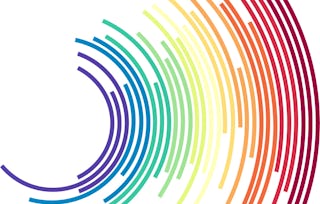This fifth and final course is centered on planetary health as a fundamental health determinant. As we consider how the health of humans is dependent on the health of Earth’s natural systems, we will also explore how to apply futures thinking and foresight principles to planetary health initiatives. The topics of this course include:

Social Determinants of Health: Planetary Health

Social Determinants of Health: Planetary Health
This course is part of Social Determinants of Health: Data to Action Specialization


Instructors: Daniel J. Pesut, Ph.D., RN, FAAN
Included with
Skills you'll gain
- Community Health
- Social Determinants Of Health
- Environmental Science
- Environmental Monitoring
- Health Education
- Regression Analysis
- Public Health
- Forecasting
- Scatter Plots
- Data Analysis
- Sustainable Development
- Systems Thinking
- Health Equity
- Climate Change Adaptation
- Data Visualization
- Health Informatics
- Health Policy
- Skills section collapsed. Showing 10 of 17 skills.
Details to know

Add to your LinkedIn profile
See how employees at top companies are mastering in-demand skills

Build your subject-matter expertise
- Learn new concepts from industry experts
- Gain a foundational understanding of a subject or tool
- Develop job-relevant skills with hands-on projects
- Earn a shareable career certificate

There are 5 modules in this course
The field of planetary health is based on the idea that the health of humans is dependent on the health of Earth’s natural systems. This module introduces the concept of planetary health and explains how it can be used as a framework for understanding other social determinants of health. The first lesson provides an overview of planetary health as a discipline, paradigm and movement. Lesson two explores the Indigenous origins of planetary health, and how the Great Acceleration has rapidly increased anthropogenic changes to the environment. Finally, in lesson three, we examine how planetary health addresses environmental determinants of health.
What's included
4 videos6 readings2 assignments1 discussion prompt1 plugin
Module 2 builds on what you learned in the previous module, as we take a more in depth look at planetary boundaries and the key data supporting our current understanding of planetary health. Climate change is not the only issue we are facing, and in lesson two, we investigate the broad range of environmental issues caused by humans and the resulting human health impacts of these disruptions. In lesson three, we take a look at the 12 cross-cutting principles of planetary health education which define the guiding themes and values of the emerging field. These principles provide a foundation for the growing interest and efforts in the field. We wrap up this module by looking at sources of planetary health knowledge, as we begin to reflect on how we can all take action in improving planetary health.
What's included
5 videos4 readings2 assignments1 discussion prompt1 plugin
In this module, we will explore movement building and emerging evidence-based planetary health solutions as we discuss how to combat the complex environmental issues covered in previous modules. Lesson one introduces the idea of The Great Transition, which will require innovation across fields and collaboration across social sectors to address planetary health concerns. We will also review organizations focused on evidence-based climate change solutions. In lesson two, we will analyze strategies for organizing an effective movement to enact widespread planetary health initiatives that will create change on a global scale. While the issue of planetary health can seem overwhelming, lesson three offers reasons to be hopeful for the future, as we consider the changes we can make in our own life to address planetary health issues.
What's included
5 videos5 readings2 assignments1 discussion prompt2 plugins
The purpose of this module is to introduce the concept of futures literacy and foresight leadership as people tackle the challenges of planetary health initiatives. People who want to bridge innovations across contexts must become time-conscious, future literate and embrace the dynamics of appreciation, influence and agency as they navigate change and transformation efforts. The development of futures literacy involves attention to the development and cultivation of futures thinking and foresight leadership. In part one, foresight is defined and several types of foresight leadership styles are described. In part two, strategies to develop foresight leadership are described and people are invited to apply futures thinking and foresight principles and practices to planetary health initiatives.
What's included
2 videos4 readings2 assignments1 discussion prompt2 plugins
This module will focus on analyzing, displaying and interpreting social determinants of health data, with a particular focus on predicting health outcomes based on various social determinants of health and environmental variables. Lesson one will provide an overview of regression analysis and scatter plot visualization. In lesson two, we will learn how to conduct regression analyses and create scatter plots in R. Using the NHANES dataset, we will predict general health status based on age, BIPOC, marital status, education, household size, income, insurance, BMI, depression, smoker, and drinks/day. Using the Omaha System dataset, we will predict final status score based on baseline status score, BIPOC, marstat and social determinant of health variables. Finally, we will discuss how to interpret the results of our analysis as we visualize our findings using line graphs and scatter plots.
What's included
2 videos4 readings1 peer review1 discussion prompt1 ungraded lab2 plugins
Earn a career certificate
Add this credential to your LinkedIn profile, resume, or CV. Share it on social media and in your performance review.
Instructors


Offered by
Explore more from Health Informatics
 Status: Free Trial
Status: Free TrialUniversity of Michigan
 Status: Preview
Status: PreviewYale University
 Status: Free Trial
Status: Free TrialUniversity of Michigan
 Status: Free Trial
Status: Free TrialUniversity of Michigan
Why people choose Coursera for their career

Felipe M.

Jennifer J.

Larry W.

Chaitanya A.

Open new doors with Coursera Plus
Unlimited access to 10,000+ world-class courses, hands-on projects, and job-ready certificate programs - all included in your subscription
Advance your career with an online degree
Earn a degree from world-class universities - 100% online
Join over 3,400 global companies that choose Coursera for Business
Upskill your employees to excel in the digital economy
Frequently asked questions
To access the course materials, assignments and to earn a Certificate, you will need to purchase the Certificate experience when you enroll in a course. You can try a Free Trial instead, or apply for Financial Aid. The course may offer 'Full Course, No Certificate' instead. This option lets you see all course materials, submit required assessments, and get a final grade. This also means that you will not be able to purchase a Certificate experience.
When you enroll in the course, you get access to all of the courses in the Specialization, and you earn a certificate when you complete the work. Your electronic Certificate will be added to your Accomplishments page - from there, you can print your Certificate or add it to your LinkedIn profile.
Yes. In select learning programs, you can apply for financial aid or a scholarship if you can’t afford the enrollment fee. If fin aid or scholarship is available for your learning program selection, you’ll find a link to apply on the description page.
More questions
Financial aid available,
¹ Some assignments in this course are AI-graded. For these assignments, your data will be used in accordance with Coursera's Privacy Notice.

